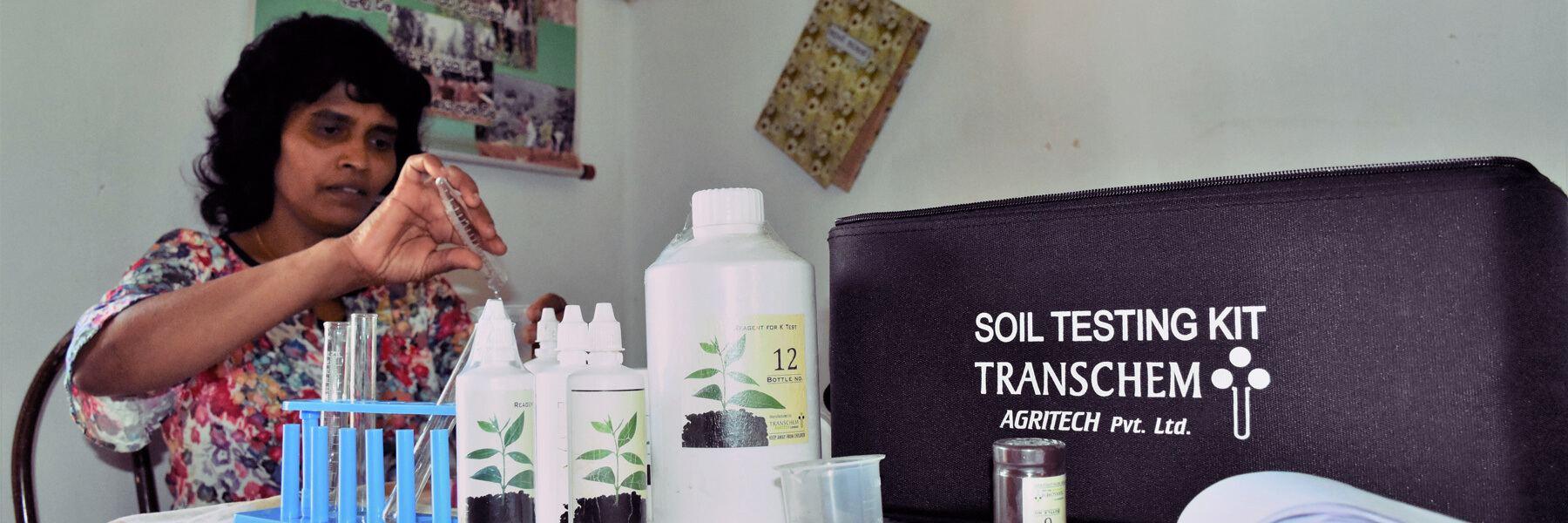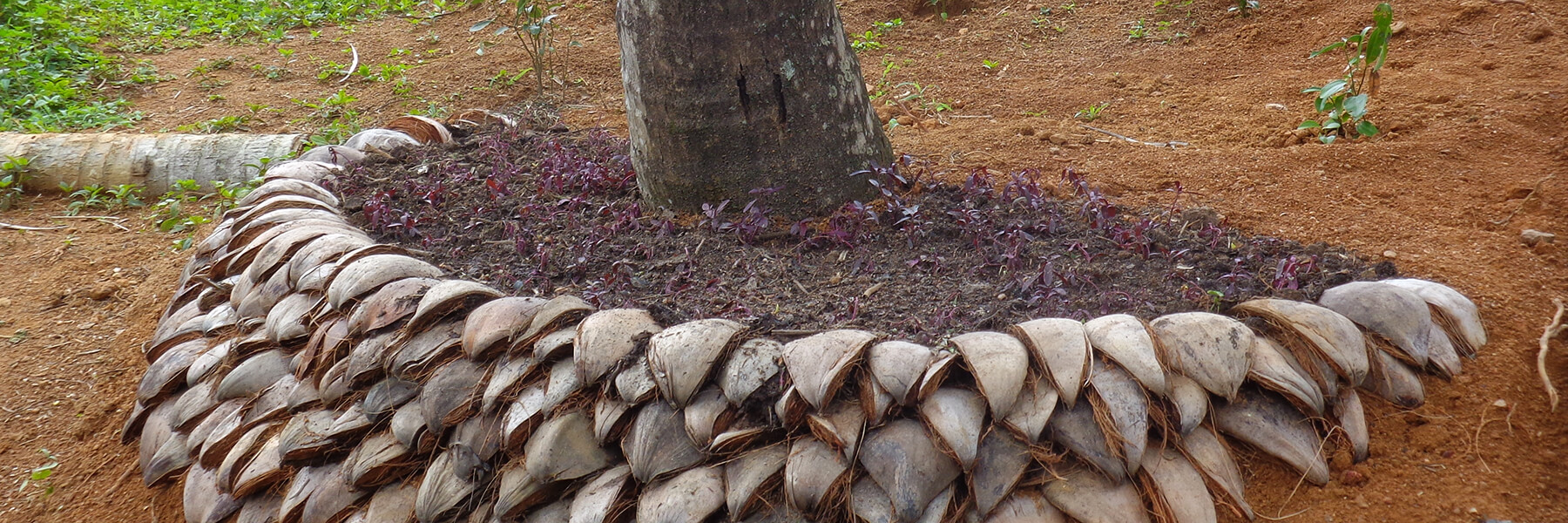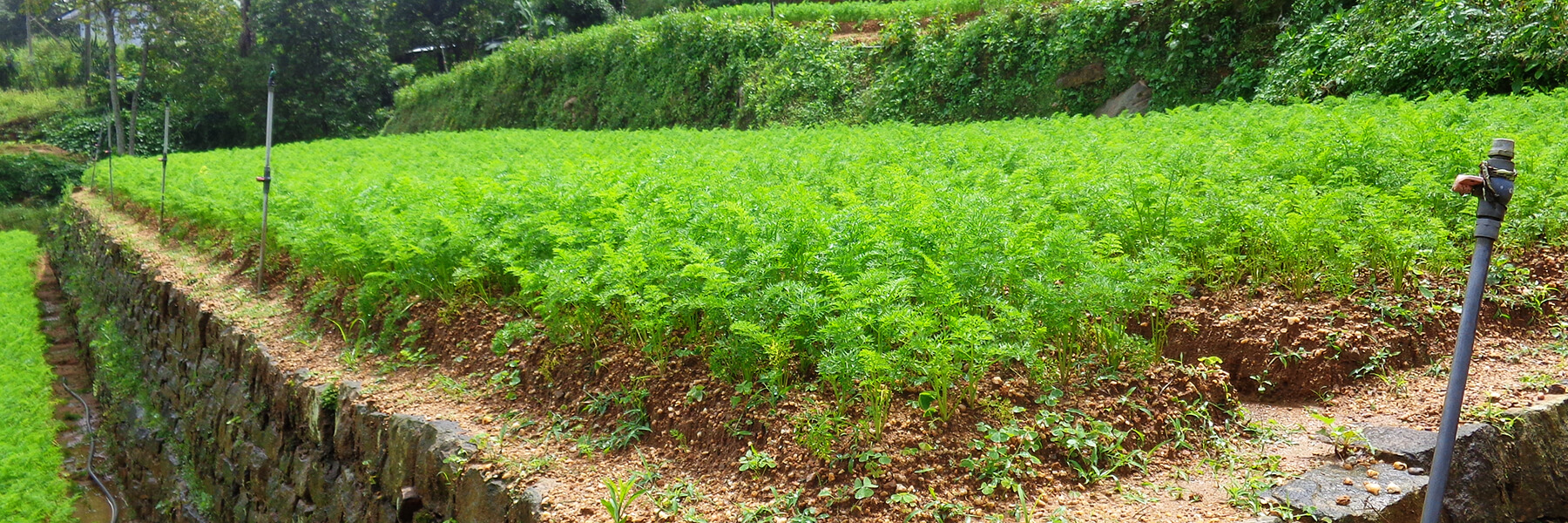Small scale dairy farmers gain success through sustainable land management
Santha Kallora, 43, is a successful dairy farmer today in the Gurukelle village of Doluwa in the Central Highlands of Sri Lanka. After leaving school, he became a professional mason. While he was working as a mason, he started raising a dairy cow using his free time. Since then he realized the potential of relatively fixed income-earning opportunities from dairy farming compared to seasonally available masonry.
Kalloraand his wife worked hard for the betterment of their two children’s future. They had two plots of lands between rolling hills, cultivated tea and vegetables additionally while keeping dairy farm income for household expenses and educational fees for their children.
However, with all these hard works they could earn limited income just to make ends meet. Kallora and his wife had no other way to think of a better income and a better life. They just followed traditional dairy farming practices and did not know ways of improving his farm, the importance of proper housing for animals or good dairy practices. They only received income from sale of milk and did not use farm waste for fertilizer in own tea land or sell them as organic fertilizer. Since there was no regular collection of farm waste as the cows did not have a proper shade. There was no farm waste collection and disposal method and unprotected farm waste disposal led to wash them away and polluted the water streams.Cow-dong was abandoned beside the temporary cow shade while Kallora spends a lot of money for chemical fertilizer.
In 2018, the Food and Agriculture Organization (FAO) of the United Nations together with the Ministry of Mahaweli Development and Environment Initiated the Rehabilitation of Degraded Agricultural Land Project (RDALP) in Kandy, Nuwara Eliya, and Badulla districts. The project promotes sustainable land management practices among the farmers in the Central Highlands of the country. The project introduced a crop-dairy integrated model as a sustainable land management practice to reduce water pollution by farm wastes. The project covered Gurukele village and farmers including Kallora became active members. A leading private sector dairy company “Fonterra” was also contributed to the project as a stakeholder providing effluent management systems to dairy farmers. After attending several training programs organized by the RDALP Kallora and other framers learned on the importance of permanent housing for animals, composting, effluent management and sustainable land management techniques. Kallora applied these techniques he learned and received impressive results.
He now properly collects farm wastes and uses them for his tea and vegetable cultivation and sells excess and receive additional income.The collected liquid effluent from the cowshed was sprayed to the tea land. As animals received better housing,sufficient food and water the milk yield has been increased by 10 liters per day. His tea-green leaves harvest has increased by 100kg per month with the use of organic fertilizer and the application of SLM.
He has applied SLM techniques such as terracing, lock and spill drain to stop soil erosion. CO3 grass has been planted along the edges of the terraces and drains for soil erosion control and use as fodder for cows. He has stopped the application of chemical fertilizer for his vegetables and tea cultivations. Kallora said that his income from vegetable cultivation increased significantly. He earned LKR1,500 from carrot, LKR 3,000 from green beans, LKR16,000 from cabbage leaves and LKR 3,00 by selling brinjals in 2019 Yala (March – April) season.
“Before the project started, I had no idea what to do and how to do things differently to improve my income. I felt trapped. The application of sustainable land management techniques helped to stop soil erosion in my lands. Now the soil is very rich with compost and looks very fertile. The project supported us to build four-cow unit and compost collection shed. Now my dairy cows have better housing facility and milk yield is also very high.Now my monthly income from milk is over LKR 80,000. Compost shed is an innovative idea that we did not even think before. I have successfully integrated my dairy and vegetable cultivation. I use compost for my tea and vegetable cultivations. I knew that compost can be used for vegetables but never thought of applying compost for tea”, said Kallora.

Today, Kallorais a demonstration farmer in the area for the RDALP. He shares his experience with other farmers in the area. Additionally, the crop-dairy integrated model helps to popularize sustainable land management practices among the farmers.
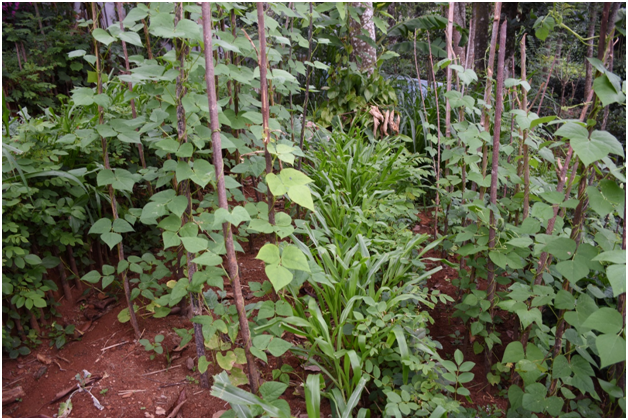
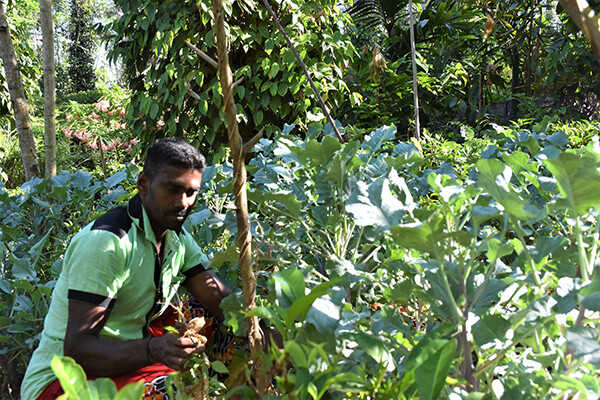
“For small-scale dairy farmers income receive from milk is not enough to sustain. Land productivity should also be improved to increase farmer income. This crop-livestock integration model is a highly successful intervention. As a milk collecting company, we are benefited from it as the farmers supply clean milk to us. This is the first time that we partnered with government organizations in the field level”, said Fonterra Operations Director Mr.Kamal Geethanjanage.
From 2018 January, RDALP has been promoting SLM best practices in the Kandy, Nuwaraeliya, and Badulla districts in the central highlands of Sri Lanka, where most of the lands are unproductive. By the end of October 2019, the project directly trained 2,784 farmers on SLM and of the 44% are women farmers. RDALP closely work with the Department of Agriculture, Department of Animal Production and Health, Department of Export Agriculture and Tea Small Holdings Development Department in implementing sustainable land management practices. The project work to disseminate SLM techniques,establish SLM demonstration models, scaleup SLM practices by strengthening networks of training and extension and paving the way for government and private companies to work together and find innovative funding opportunities for SLM.
Based on the success of this project, the government stakeholders are promoting the dairy - crop integration model and sustainable land management techniques to other farmers.

